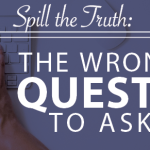Recently, I conducted a workshop for a group of professionals on how to create a compelling elevator speech.
As part of the process, I had them write a draft and then share it with the group.
Without fail, each person started out by saying something like, “Okay, I didn’t have much time to work on this” or “Mine isn’t very good.” Then they proceeded to rattle off what they had written, pausing periodically to insert more disclaimers, some as disheartening as “I’m terrible at this.”
After three or four people read their drafts, I stopped the group and drew attention to the, perhaps unintentional, issue of self-denigration and insisted that everyone try again. Only this time, rather than shooting themselves down, I asked them to at least remain neutral about their efforts.
I get it. It’s tough to promote yourself, especially when you’re not feeling super-confident. That’s why I gave them some new starter phrases to try, including:
- “I have a draft to share.”
- “I’d be delighted to go next.”
- “I’m excited to hear everyone’s feedback on my content.”
Whether it’s rooted in humility or low self-esteem, many professionals take themselves out of the running before they’re out of the gate. The intention seems to be to lower expectations so, if you fail, it won’t be a big deal.
I see this negativity all the time, which is why I’m determined to change how we talk about ourselves. And that goes for anyone who’s ever done any of the following:
- started a presentation with an apology
- told your team you’re sleep deprived and not up to par
- pointed out flaws in your physical appearance
- given excuses as to why your work isn’t good enough
- downplayed your individual contributions as being a team effort
Self-denigration—more than any other communication misstep—negatively affects your reputation. So, at the very least, don’t put yourself down. Being neutral is preferable. Even better: Say something good about yourself and your contributions.
Ultimately, you’re not the judge. But if you’re not on your own side, why should anybody else be?
Before you act . . .
Self-denigration guarantees low perception points. But you can learn to break this bad habit. How? Start by following another of my favorite golden rules: If you can’t say something positive about yourself, don’t say anything at all.







